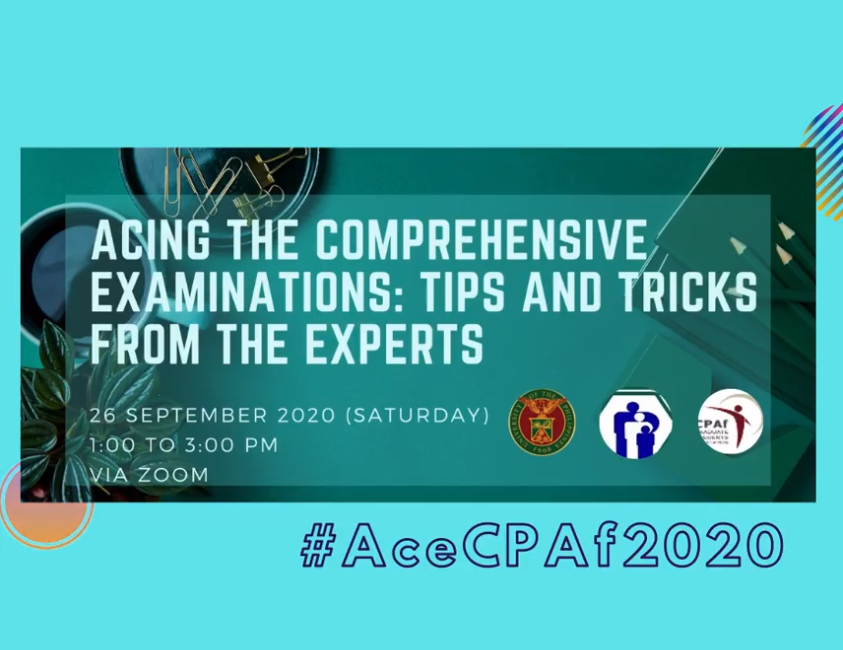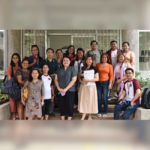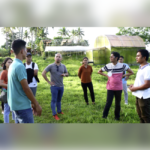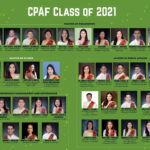
One of the major requirements of Master’s and PhD programs in UPLB is passing the comprehensive exam. To help graduate students of CPAf prepare and pass their written and oral compre exams, the CPAf Graduate Students’ Association (GSA) and Alumni Association (AA) hosted a Zoom webinar titled “Acing the Comprehensive Exams: Tips and Tricks from the Experts” on September 26. Three CPAf alumni, one PhD candidate, and two professors served as resource speakers.
The first set of speakers, new graduates Dr. Manuela Prandini (PhD Extension Education), Dr. Paul Jersey G. Leron (PhD Development Studies), and Mr. Azareel A. Sumaya (MPAf Education Management); and PhD candidate Glenda S. Peña shared their experiences in preparing for their compre, answering exam questions, and managing their time during the exams. They emphasized the importance of self-discipline, commitment, consistency, focus, self-care, and support group. Dr. Leron and Mr. Sumaya also suggested making an outline of answers before writing.
In her synthesis, CPAf AA Auditor Rowena Yap-Bernal also noted three common themes in the presentations of the four speakers: working on yourself (i.e., understanding when and how you learn best), keeping track of your time and schedule (i.e., submission of requirements), and doing the “technical side” (i.e., collecting and reviewing notes).

Meanwhile, the second group of speakers were CPAf professors, Dr. Josefina T. Dizon and Dr. Maria Ana T. Quimbo, with Dr. Rowena DT. Baconguis giving the synthesis. Dr. Dizon discussed the examination requirements as per UPLB Graduate School Handbook. She also explained the integrative nature of a compre exam as it aims to measure students’ appreciation, competency, and mastery of the courses taken. As also mentioned by Dr. Prandini, “look for connections among the different courses you have taken because your end goal is to come up with a comprehensive understanding of [these] courses,” Dr. Dizon said.
Dr. Quimbo gave some pointers on what to do before, during, and after the exam. She mentioned practical tips on how to improve memory including the use of mnemonic, verbalization, visualization, among others. During the exam, she advised students to stay focused, draw connections with the subject and across the subjects taken, and be alert for some clues from the questions (in the case of oral exam). After the exam, “take time to relax…pray for thanksgiving,” she suggested.
Dr. Baconguis reiterated in her synthesis these four important reminders: prepare one’s self (i.e., practicing mindfulness and self-care), prepare the material (i.e., be guided by course outcomes), reach out to others (i.e., studying by group), and build your confidence (i.e., taking a mock exam). During the open forum, she also emphasized the need to review everything and not to rely on the old exams. The webinar was the first collaborative activity of the CPAf GSA and CPAf AA headed by Mr. Jaysi T. Corpuz and EnP. Mark Paulo G. Velasco, respectively. Fifty students representing all programs of CPAf attended the online activity.






